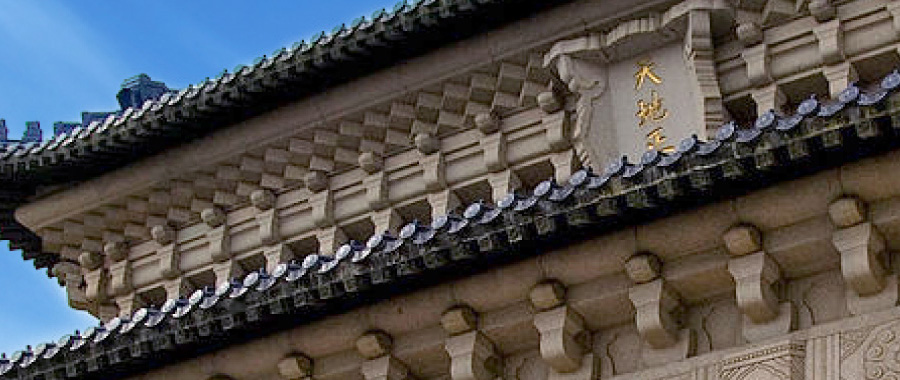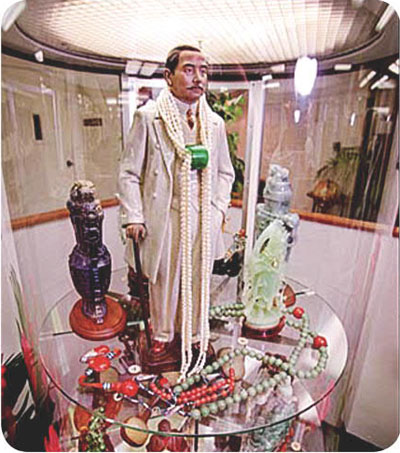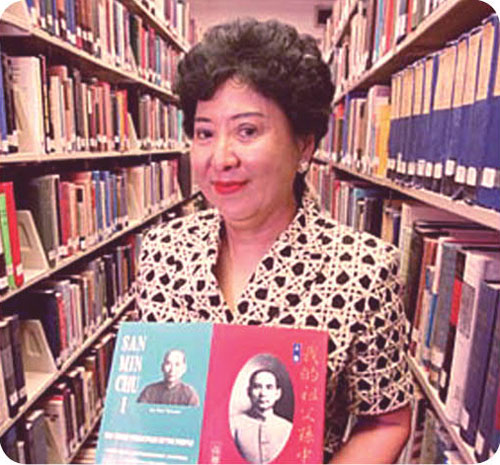




Sun Yat-sen’s granddaughter makes artifacts available for public viewing Dr. Lily Sui-fong Sun has three circles burned into her forearm, shiny emblems of scar tissue, the result of an incense-burning accident many years ago. But she’s not shy about showing them to you, because they remind her daily of the three principles of human harmony espoused by her grandfather, the legendary Chinese revolutionary Sun Yat-sen.
“The ‘Three Principles of the People’were inspired by Abraham Lincoln, and they helped create a modern China,” said Sun.“They are, basically, nationalism, democracy and the people’s livelihood. Or, even more basically happiness, friendliness and getting enough to eat.”
Sun was sitting in Meader Library of Hawaii Pacific University downtown. The college not only has approximately 300 students from Taiwan, Sun is an alumnus and trustee of the school. She has been donating books and family heirlooms to the campus to inspire more scholarship about her famous grandfather.
Last week, the school dedicated a collection of Sun Yat-sen art pieces donated by Sun. They sit in a modern round display case in the library, reminding patrons that Sun Yat-sen was a real human being, not a mythological figure.
Many of Sun’s ideas germinated in Hawaii, where he spent his teen and young adult years. Combining the principles of democracy and nationalism, and driving a wedge into the vacuum created by departing Western colonial powers, Sun’s Kuomintang political party became the government of choice in China’s successful 1912 revolution. The Kuomintang became the dominant political organization in China until it was ousted by the Communists in the late ‘40s.
It’s a measure of the internecine nature of Chinese politics that Soong Ching-ling, Sun Yat-sen’s second wife and Sun’s grandmother, became a Communist official.The Kuomintang, now generally known as the Nationalist party, have occupied Taiwan, while the Communists control the mainland. Both groups claim to be the rightful political parties of modern China.
Both groups also revere Sun Yat-sen as the founder of modern China, without whom neither party would have gained a foothold. Sun is careful to be politic when discussing the governments of both nations; her goal is to keep alive the creeds and ideals of her grandfather.
“It is delicate. On the surface the Communists praise grandfather, but deep down, many hate him because he was an advocate of democracy.”
she never knew him except through these ideals. Sun Yat-sen died of cancer in 1925 while attending a political conference and Lily Sui-fong Sun was born in Shanghai in 1936. As a girl she suffered from whooping cough, and the family moved her to a place they thought would be healthier, Hong Kong, in November 1941.
Her young memories of the war include blackouts, bombing attacks,“crying every day and covering my eyes so no one would see,” a craving for sugar. After the war came revolution, and National and Communist forces, now flush with weapons abandoned by the Americans,scrambled for control. As she went to high school, Sun moved betweenworlds, living in Hong Kong, Taiwan and Shanghai.In the mid-’50s, she studied architecture in Shanghai, and had trouble being accepted. “Because of my family, they thought I was a reactionary.Even though I was an honored student in high school, they would not admit me. Grandmother (Soong Ching-ling) wrote a letter to Tongji University and they admitted me a year later.”
Graduating in 1959, and unable to find work “No one would help me” Sun moved to Hong Kong, married and became an interior designer. A decade later,with the Cultural Revolution ramping up on the horizon like a thunderstorm, Sun and her husband moved to Hawaii.
“This is my home,” said Sun, indicating everything around her. Later divorced, she threw herself into Chinese studies and preserving Sun Yat-sen’s legacy, “the national hero of modern China everything he did was for the nation.” China today tolerates symposia of hundreds of scholars gathering together to discuss Sun Yat-sen’s teachings, as if he were a modern Confucius. “For a while, I was on a black list, then in 1997, Chairman Jiang Zemin called grandfather one the three great men of modern China, and things turned around. For that I thank him.” As for the Communists’ hard-to-break habit of rewriting national history to suit current political whims, Sun says “It is a sword aimed at my heart. But I believe in karma. What you harvest grows from what you sow.”

Items donated by Lily Sui-fong Sun are on display in the Hawaii Pacific University library (Dennis Oda photo).

Sun also donated two books about her grandfather, Sun Yat-sen (Dennis Oda photo).
- Star-Bulletin August 27, 1999